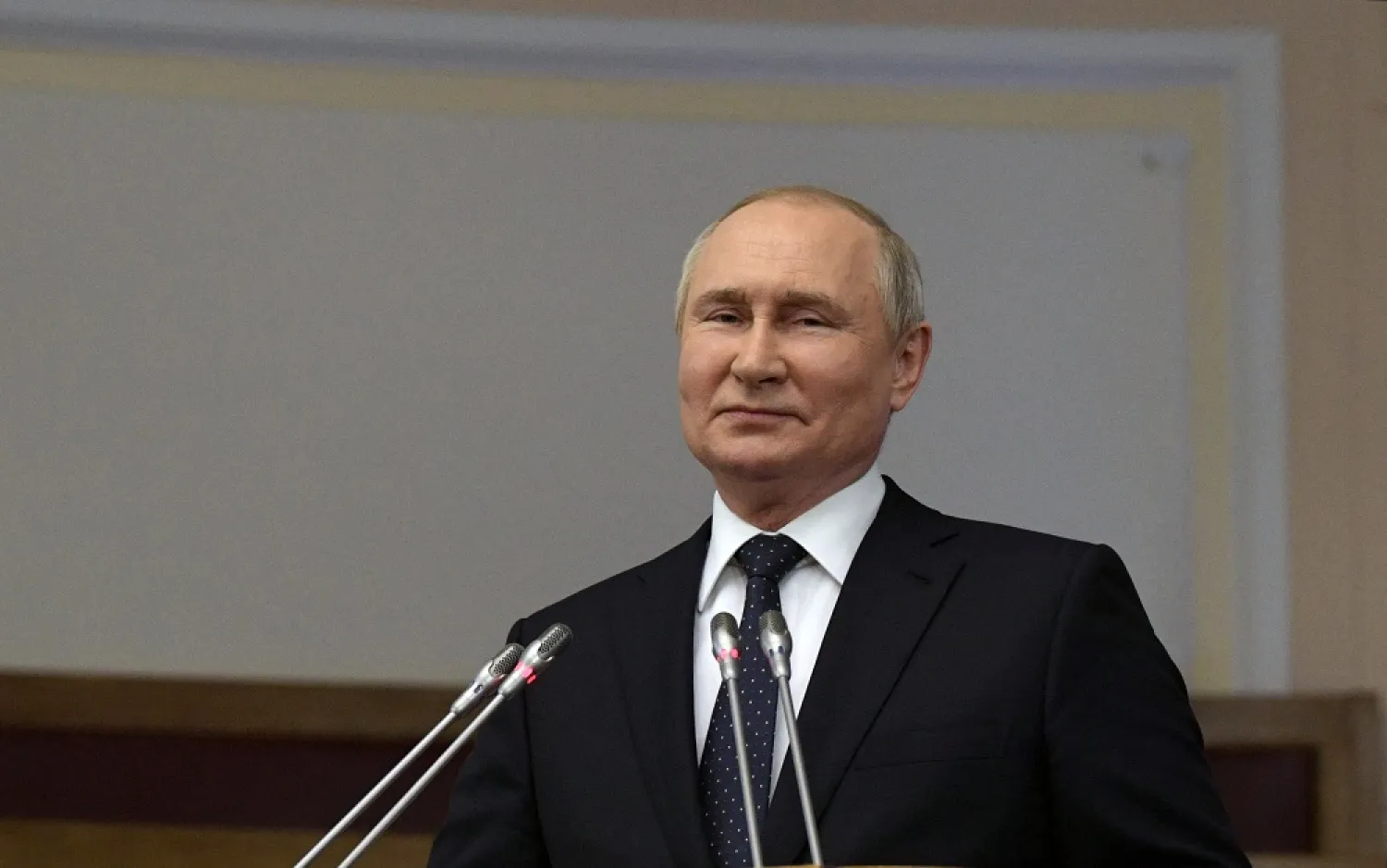Cutting off natural gas to Poland and Bulgaria cost Russian President Vladimir Putin very little - but it is adding stress on European countries wrestling over how to reduce energy imports that are feeding the Kremlin's war chest and how to keep a united front on the war in Ukraine.
European Union officials say yielding to Putin's demand to pay for gas in rubles would violate Western sanctions imposed over the invasion. Poland and Bulgaria were cut off after refusing the demand and say they will manage because they were already working to end their dependence on Russian energy supplies.
Analysts say there is enough ambiguity in the European stance to let the Kremlin continue its efforts to undermine unity among the 27 member countries - even if an implied threat to cut off major customers such as Germany and Italy may turn out to be an empty one because it would cost Russia heavily.
The cutoff sent a chill through EU officials wondering how their utility companies will heat homes and generate electricity next winter. Putin got maximum disruption of what he regards as a hostile alliance for minimal costs because Poland and Bulgaria are relatively minor customers who were about to end their contracts at year's end anyway.
Poland's entire gas import was only 10 billion cubic meters per year, out of total European imports of 155 billion from Russia. Gas in roughly that amount is already flowing to Poland from other European countries pitching in to help.
Russian energy giant Gazprom has lost relatively little revenue but opened a new front in its confrontation with Europe.
"He wants to fragment European countries and their stance toward energy diversification and the overall stance against Russia," said Simone Tagliapietra, an energy expert and senior fellow at the Bruegel think tank in Brussels. "What he is creating is a system where he can basically divide countries, as we are seeing, for the ones that don't want to comply with this new scheme will be cut off, while others will try to comply and essentially go against the European Union indication."
European payments for oil and gas amount to $850 million a day even as governments condemn the war, the result of decades in which Russia was regarded as a reliable supplier of cheap gas despite warnings from Poland and other central and Eastern European countries that Russia could use energy as a weapon. While Europe needs the oil and gas, those sales are the main pillar of the Kremlin's budget.
European Union countries or companies bowing to the terms of a Russian presidential decree that insists they pay their gas bills in rubles will be in breach of the bloc’s sanctions, senior EU officials said Thursday. Around 97% of European gas contracts with Russia are in euros or dollars.
Under Putin's new payment system, the Kremlin has said importers would have to establish an account in dollars or euros at Russia’s third-largest bank, Gazprombank, then a second account in rubles. The importer would pay the gas bill in euros or dollars and direct the bank to exchange the money for rubles.
The sanctions violation essentially comes with the use of the second bank account because the ruble conversion involves a transaction involving Russia's sanctioned central bank.
The EU’s executive branch, the European Commission, says companies could remain in compliance by paying in euros or dollars per their contract, then making a "clear statement" to Gazprombank that their payment obligations are over.
That leaves an opening for the Kremlin to accept the statement or not - a potential pressure point for member countries.
Russia has Europe "over a barrel in the sense of making it a requirement that if they want any gas, then they’ll have to break their own sanctions by paying for it in rubles," said David Elmes, an energy expert at Warwick Business School. "And so they’re calling Europe’s bluff, if you like. Which do you want to do on the gas - or do you want the sanctions?"
Uniper, Germany's biggest importer of Russian gas, said it has been paying in euros and will continue to do so but indicated that it would be prepared to open a second account in rubles.
"We believe that a change of payments which conforms to sanctions laws and the Russian decree is possible," the company said in a statement. "What’s clear is that Uniper will continue to pay in euros."
The company declined to say when and under what conditions it would open the ruble account. It said it's coordinating with the German government but that "doing without Russian gas at short notice isn’t possible, it would have dramatic consequences for our national economy."
Italian officials said they were waiting for further guidance from the EU on whether the payment workaround violates sanctions.
John Lough, an associate fellow in the Russian and Eurasia program at the Chatham House think tank, said Russia’s cutoff was meant as a signal to major importers Germany and Italy.
"But if they have to follow through on their threats, then they have to cut off the nose to spite their face," he said. "And that’s a big problem. So it’s a kind of game of chicken."
It could also mean more power for Russia to decide which countries get exemptions on the ruble conversions, making it "extremely difficult for Europe to coordinate any action on the energy diversification front,” Tagliapietra said.
That could slow progress on achieving the EU's goal of cutting Russian gas imports by two-thirds by year's end and undermine unity on further sanctions, this time aimed at the Kremlin's main moneymaker, oil and gas sales.
"How can we have a joint energy response if different countries are doing, or not, business with Putin?" he said.
















